By:
- Erika Johnson
Published Date
By:
- Erika Johnson
Share This:
UC San Diego Celebrates 20th Annual Black History Month
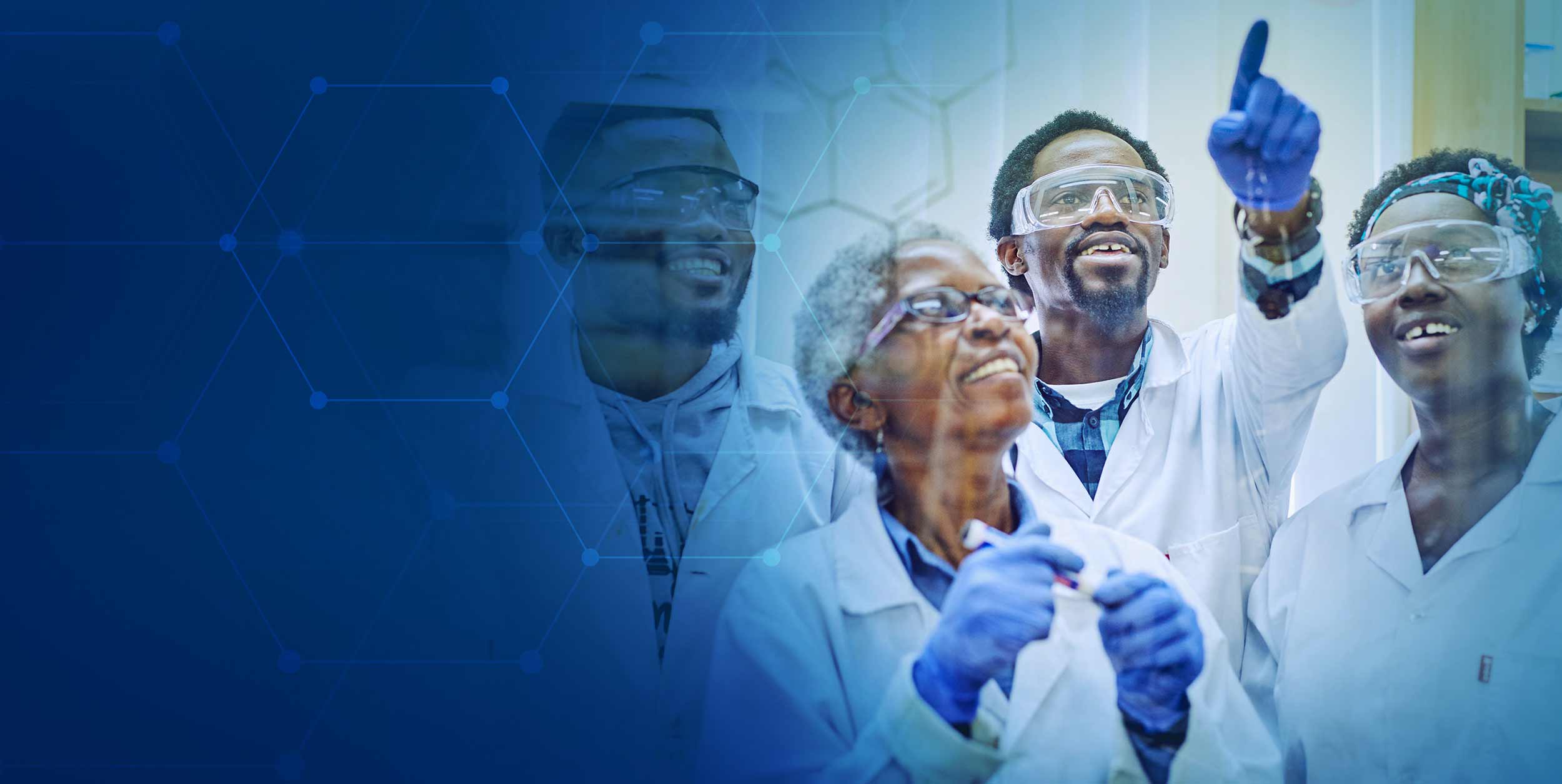
This February marks UC San Diego’s 20th annual Black History Month celebration. Throughout the month, we recognize the important contributions of our Black students, staff and faculty and invite the entire campus community to join in a series of events that center on the theme of “Black Health and Wellness: UC San Diego Honors Medical Pioneers and Community Healers.” Festivities range from film screenings and music performances to exhibits and lectures.
Here, we highlight and thank UC San Diego community members who are making a difference in the health and wellness of others through their work. They are caring mental health professionals who help others to grow in their wisdom and identity and navigate challenges that may arise. They are advancing science and medicine by unlocking the human virome—collections of viruses in the body—and studying the nearly invisible patterns of aerosols to better understand airborne viruses. And they are addressing gaps in health care by exploring how low-income communities strategically meet their health care needs through informal networks.
“During Black History Month we intentionally celebrate and center the beauty and brilliance of all things Black,” shared Porsia Curry, director of the Black Resource Center. “I am thrilled that as we focus on the theme of Black Health and Wellness, we take the time as a campus to recognize and thank the heroes in our UC San Diego community who have guided, supported, and quite literally saved us all. Know that your work and commitment do not go unnoticed. We sincerely thank you and appreciate you for all you do!”
You are loved
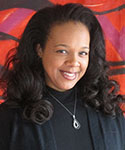
For two decades, Cathy (Cat) Thompson, Ph.D., has helped students navigate and become grounded in their identity at Counseling & Psychological Services (CAPS). During her tenure, she served as a liaison to the Campus Community Centers, providing tailored psychological services to underrepresented groups. And just a few weeks ago, she began a new role as a counselor with the Faculty & Staff Assistance Program (FSAP) where she will help campus faculty and staff balance their personal and professional lives.
Thompson shares her pathway to a career in mental health and the importance of finding connection in uncertain times:
“I was inspired to get into the field of psychology as an undergraduate student at UC San Diego. I had come in as pre-med, but me and chemistry didn't get along and I realized that I didn't really like the sight of blood or the thought of working on a cadaver. I really wanted to be in a position to help people learn to love themselves and appreciate their strengths and their value. I was naturally open-minded and non-judgmental and had once been helped by a counselor, so I thought that becoming a psychologist could be an option. I started taking psychology classes and really enjoyed them. I could still become a doctor as I'd been planning since age eight, I would just be a different kind of doctor—Ph.D. rather than M.D.!
“More people are talking about the importance of self-care and connection in the context of the pandemic and all of the socio-political upheaval we have been experiencing. Finding ways to connect with each other and validate the feelings we are experiencing is so important. There has been an increased sense of anxiety and uncertainty that often goes unrecognized. It takes a silent toll and folks think it is just them, but we have all been experiencing it in one way or another. Naming it and recognizing it is crucial in helping us to stop personalizing a sense of inadequacy or lack of productivity. We are doing so much just to maintain and need to acknowledge that.”
Friend or foe? Unlocking the human virome
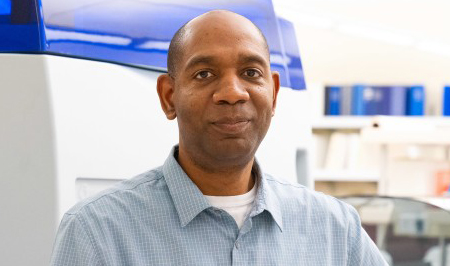
David Pride, MD, PhD, is an associate professor of pathology at UC San Diego School of Medicine and director of the Clinical Molecular Microbiology Laboratory at UC San Diego Health. As an infectious disease specialist, Pride runs a research laboratory that specializes in viruses and has been in a leader in the university’s development of testing strategies in response to the COVID-19 pandemic.
In a recent Q&A in Discoveries Magazine, Pride shares more about the human virome and the wily nature of bacteria that can protect or infect:
“Regardless of whether we are healthy or sick, we’ve all got viromes, which essentially are just collections of viruses that inhabit the human body. Many of these viruses infect the many bacteria that also live in the human body, and thus, we probably need to think about ourselves slightly differently than we probably do. That is, that we are collections of microbes that vastly outnumber our own cells, and that our bodies are fertile hunting grounds for viruses to attack their bacterial hosts. All of this goes on pretty much every second of every day, and we have very little insight into the fact that this is happening.
“A key feature of bacteria is that they continually evolve to solve the problems that they are faced with, such as antibiotics. This is exactly what we are observing in the current virus pandemic. We responded by rapidly developing vaccines that had the potential to significantly reduce, if not eradicate, SARS-CoV-2. Instead of simply going away, the virus has evolved specific means to respond to what we have done. The virus has chosen to infect largely those who are unvaccinated and has even mutated to become clever enough to infect some who are vaccinated. This persistence despite our best efforts is real-time proof that this virus will continue to try to respond to what we do to eliminate it.”
Take off your superhero cape
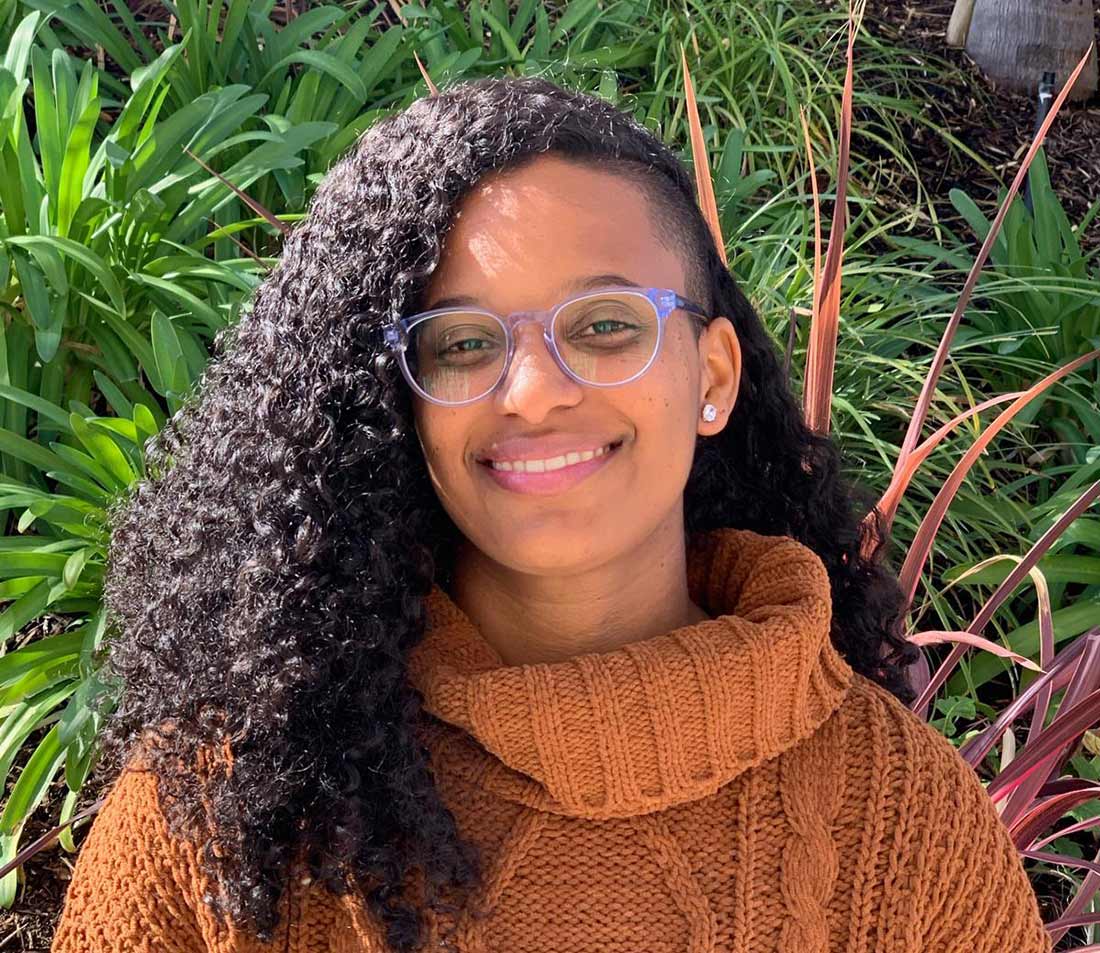
Danielle Simien believes it takes community to heal community. She joined Counseling & Psychological Counseling (CAPS) in Oct. 2021, one of three new hires dedicated to providing culturally responsive mental health services. Simien also serves as a liaison to the Black Resource Center, where she has already begun to hold regular healing circles and a biweekly drop-in group called Black Connections.
Simien shares what she enjoys most about working with students, and how vulnerability can lead to healing:
“As a social worker, I enter people’s lives at their most vulnerable time; it is both an honor and a privilege. I love working with college students because they are just entering adulthood, and for some they are exploring their identity for the first time. It is a prime time for change, and this exploration can really impact their trajectory later. I believe every person I work with has the wisdom, knowledge and capacity to heal. Together we are a mental health team working to improve well-being. I encourage students to share tools and learnings with friends and family after—to become social change agents!
“People are starting to realize how important mental health is, especially during the pandemic when there are less distractions available. Often emotional wellness involves vulnerability, which in some cultures is discouraged or deemed unsafe due to historical and current trauma. For instance, in the Black community we are taught to be strong, to not show emotion, and to push through adversity without tending to our mental health needs. These strategies were necessary for previous generations to survive. We face these cultural and societal pressures all the time and need to feel safe before becoming vulnerable. That’s why the Black Resource Center is so important, it is a safe space for Black students, staff and faculty to take off their superhero cape, acknowledge their humanity and heal.”
Health care off the books
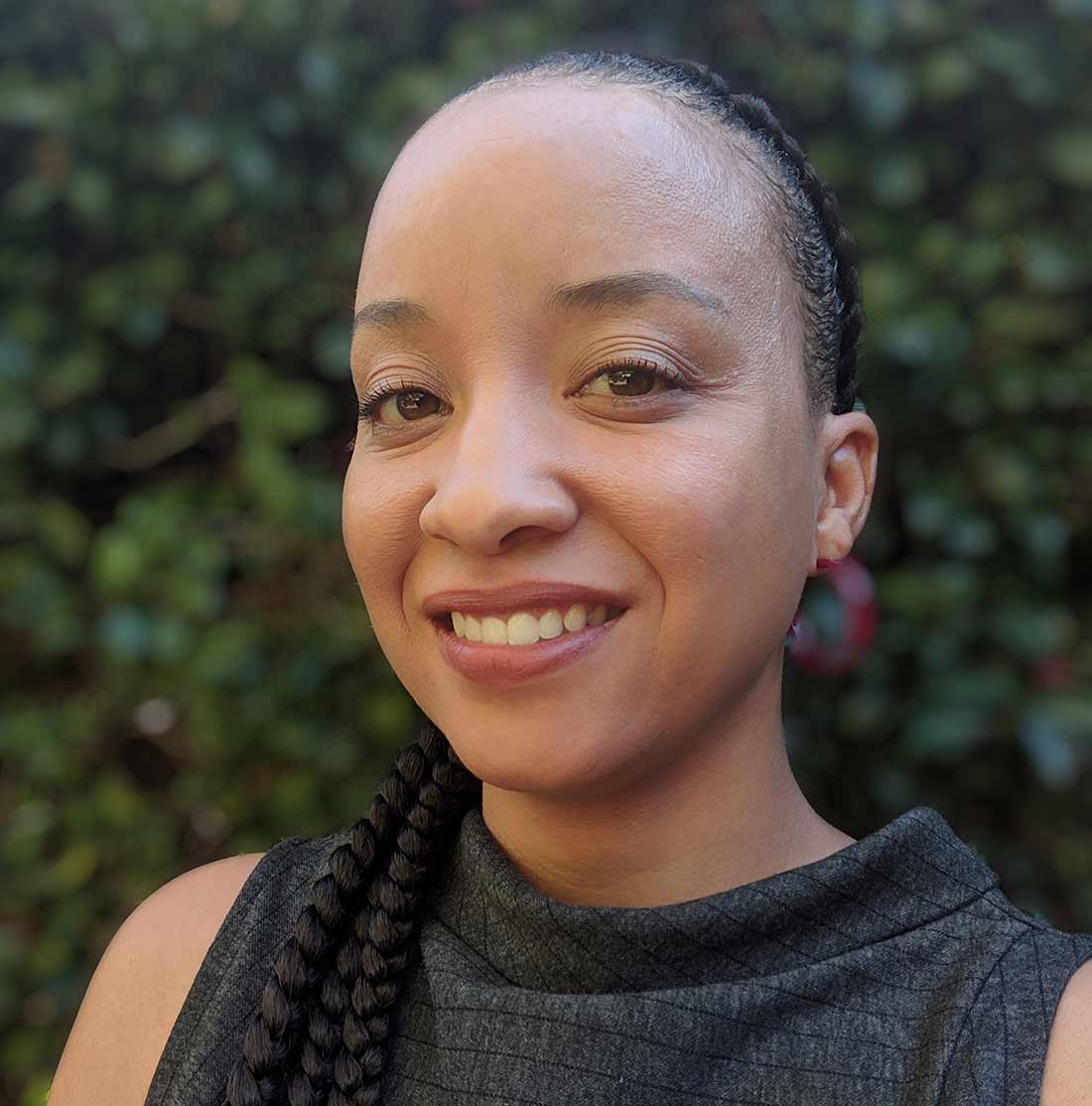
Assistant Professor of Sociology Danielle Raudenbush, Ph.D., centers her research on questions that are fundamental for understanding the health and well-being of minorities and low-income people in the U.S. Her recent book, titled Health Care Off the Books: Poverty, Illness, and Strategies for Survival in Urban America, examines the health care practices of the urban poor.
Raudenbush explains how she was first drawn to the research that informed the book, and what she discovered in the community she visited:
“On my first visit to Jackson Homes, I had no intention of researching the health care experiences of its residents. I was there, instead, as an instructor whose task was to teach a group of students how to conduct qualitative interviews. On that visit, I met two women who were employed at a local community organization that provides services to Jackson Homes residents. In passing, these women mentioned that many residents of the community had significant difficulty getting health care. They also mentioned that some residents had developed what sounded like creative strategies for treating their health problems.
“Over the course of the next three and half years, from 2010 to 2013, I spent many days and evenings at Jackson Homes. I found that people who face obstacles to care gain access to health-related resources through their social ties, meaning connections to other individuals. Some, for instance, get health-related resources from friends, family or street entrepreneurs because they do not trust their doctors or the health care system. Others do this in an attempt to exercise control over their health and health care. And still others use such strategies because it is at times easier or more convenient than going through the formal health care system.”
Tracking tiny climate change culprits
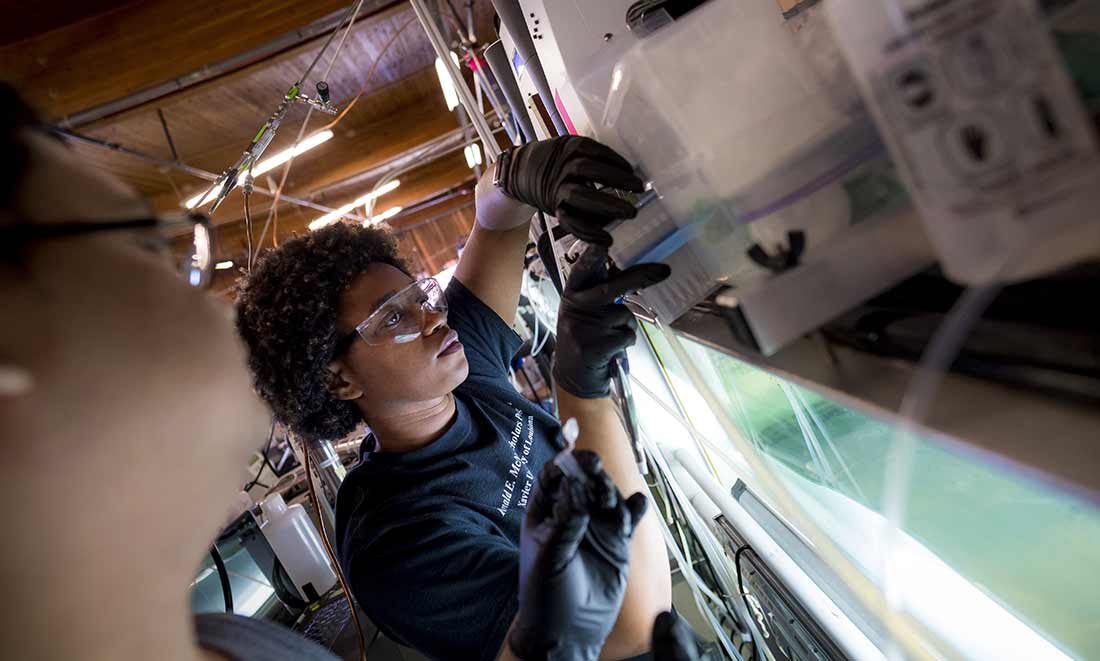
Ke’La Kimble works with the invisible world around us. As a doctoral student in chemistry, she is modifying existing aerosol sampling instruments to enable online detection of airborne viruses with a goal of better understanding how viruses travel in the air. Kimble is a member of Distinguished Professor Kimberly Prather’s atmospheric chemistry laboratory at Scripps Institution of Oceanography and recently received a Graduate Research Fellowship Program award from the National Science Foundation.
Kimble explains the impact of her research and her vision for launching an environmental justice center in her hometown:
“I work with aerosol time-of-flight mass spectrometers, an analytical instrument that uses lasers to size and then 'break up' particles so we can study their composition. Studying virus-laden aerosols would give us the chance to observe their behavior, size abundance and reactivity at much faster rates than possible now. The ability to detect viruses in the air in a matter of seconds to minutes could not only improve testing rates, but also serve as guides for social distancing and indoor air filtration methods to slow the spread of a new virus before reaching pandemic levels.
“I have a passion for both the environment and my community, which has always motivated my desire to end the environmental injustice in my hometown and surrounding areas of Baton Rouge, Louisiana. I envision launching a research center that that will innovate new ways to reduce the pollution from petrochemical plants and other industrial facilities. In addition to research, the center would have an educational outreach component that would work with schools and nearby communities to teach about the environment, climate, STEM careers and more.”
Share This:
Stay in the Know
Keep up with all the latest from UC San Diego. Subscribe to the newsletter today.



